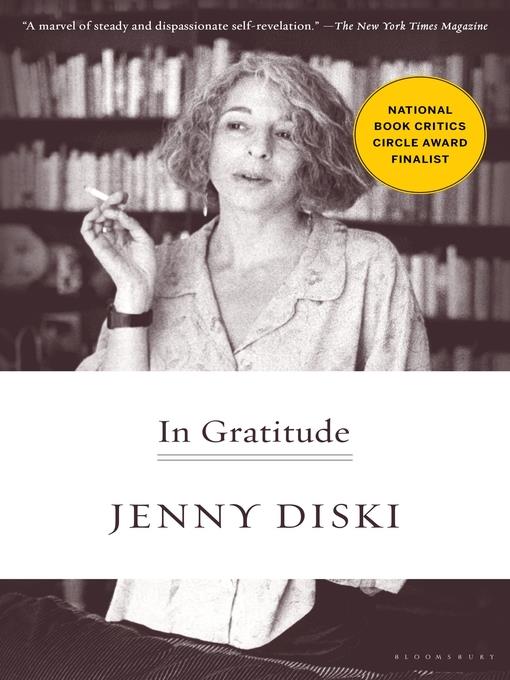
In Gratitude
کتاب های مرتبط
- اطلاعات
- نقد و بررسی
- دیدگاه کاربران
نقد و بررسی

May 16, 2016
This revealingly raw memoir by British author Diski (What I Don't Know About Animals) about living with terminal cancer is even more poignant in light of her death on April 28, 2016, shortly before the book's U.S. publication. She spends time indulging in (entirely justifiable) self-pity, but in a manner that is witty and enlightening. From the beginning, Diski draws readers in, describing her emotions upon receiving a cancer diagnosis as "embarrassment" tinged with exhaustion. She then interweaves her experiences dealing with cancer and the subsequent chemotherapy with her memories, highlighting her teenage years living with writer Doris Lessing and the tenuous bond they forged over the next 50 years. Diski dredges up her difficult childhood with bizarre parentsâan abusive, perfectionist mother and unscrupulous fatherâwhich led to time spent as the youngest patient in a psychiatric unit. Painting a vivid picture of the extreme exhaustion caused by chemo, she relates finding refuge in Alice's Adventures in Wonderland and Through the Looking-Glass, which "have always offered me the common sense of my situation." She concludes the book with a series of floating ruminations on life and death. Both heavy and light, Diski's beautifully written memoir is worth any reader's time.

May 1, 2016
A winding but elegant valediction from Diski (What I Don't Know About Animals, 2011, etc.), known as a literary journalist and chronicler in England, now resigned to a short tenure on Earth as a "canceree."What is the proper response when the doctor delivers the grim news of an inoperable tumor, an aggressive and untreatable blood condition? The author ponders all the "cancer cliches" that are available to her, deciding on the one hand that she has no major ambitions "except perhaps just lie back and enjoy the morphine" but also concluding that any choice is really not an exercise in free will as much as it is "picking one's way through an already drawn flow-chart." A central figure in her book--more broadly a memoir of intellectual life in a turbulent era than the cancer diary that she first conceived of writing--is the writer Doris Lessing, who took Diski in during a more-than-conflicted adolescence and mined her experiences for her own fiction ("I suppose the fact that she got on with it made the story hers in some way"). Some of the best parts of the book recount table talk with the likes of Robert Graves, Alan Sillitoe, Lindsay Anderson, and R.D. Laing. Diski delivers bittersweetness and resentment in spades, as when she recalls shepherding Lessing's "irritating adoratas from California or thereabout...[who] spoke of Doris as if she were a source of wisdom, and her every move significant." Hopping and skipping across years and topics--"I don't like writing narrative," she protests, "the getting on with what happened next of a story that has a middle, an end, and a beginning"--Diski describes the daily indignities of the cancer patient against a swirling backdrop of mescaline, Dylan, Lennon, and other tropes of her youth, a time of which she deliciously wrote in her book The Sixties (2009). Sometimes rueful, often oblique, but provocative and highly readable.
COPYRIGHT(2016) Kirkus Reviews, ALL RIGHTS RESERVED.

























دیدگاه کاربران